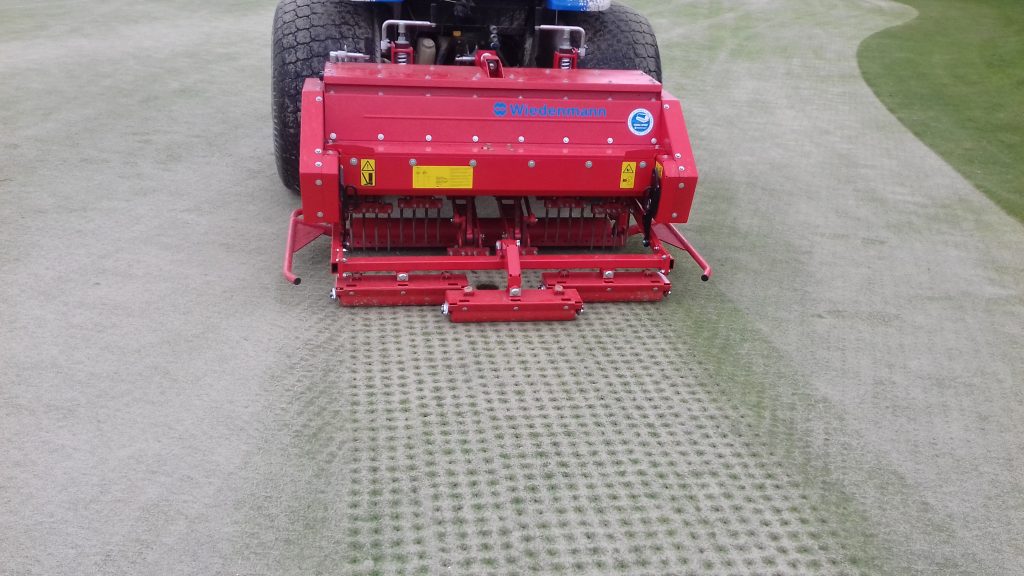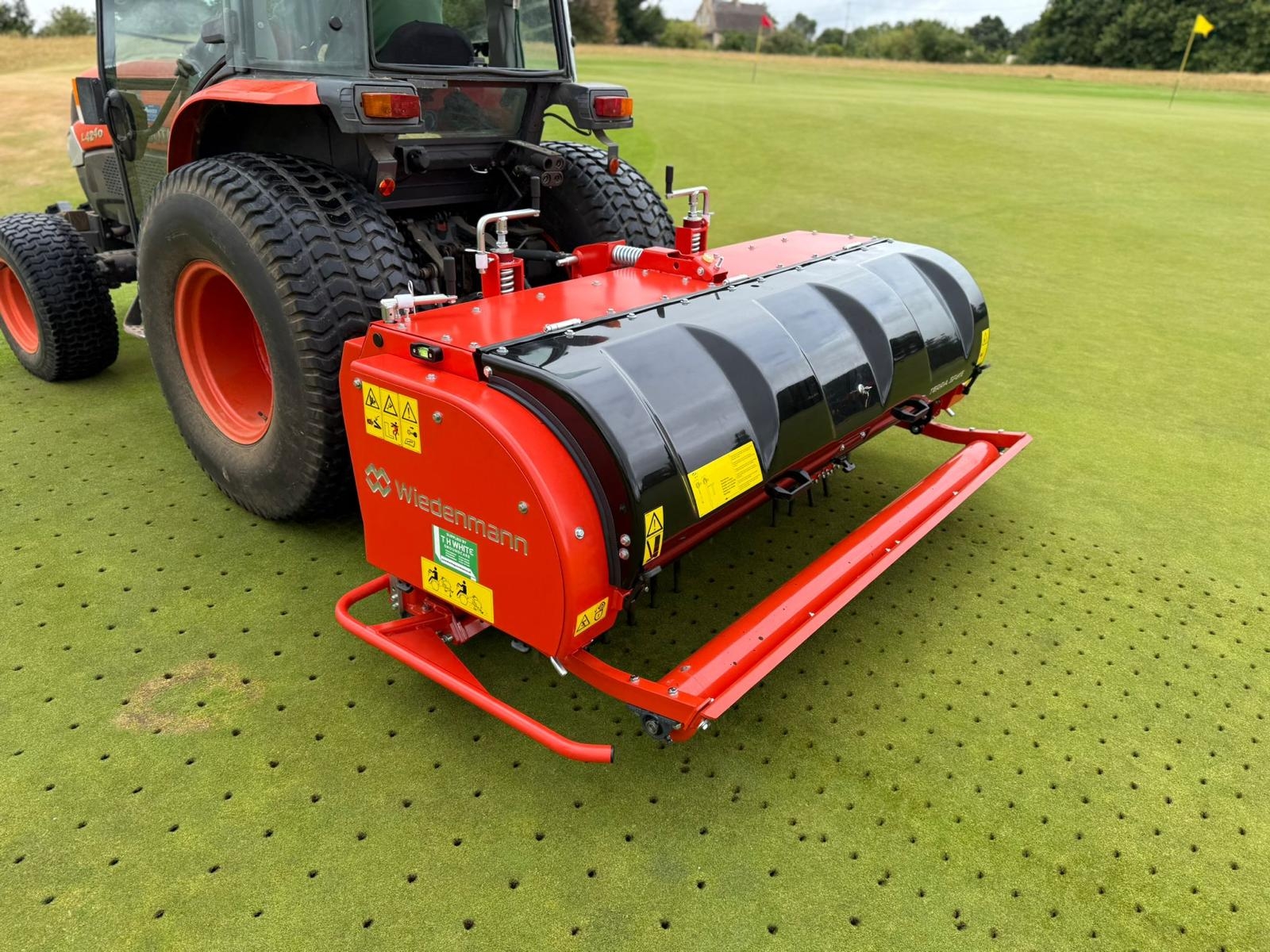The cost of not having enough rain has never been higher. With rising irrigation expenses, tighter environmental controls, and increasing water restrictions, aeration and soil management have become critical in helping turf capture and retain natural rainfall. Aeration and decompaction are now more vital than ever — and neglecting them carries a growing price.
This isn’t new knowledge — every greenkeeper and grounds manager understands the principle. Yet even the most experienced teams often say aeration is the one task they’d always like to make more time for. When conditions align, especially ahead of forecast rain, the benefits extend long after the clouds have cleared.
Aeration remains one of the most effective ways to prepare turf for heavy rainfall. Regular aeration keeps soil structure open and receptive — and many facilities now treat it as an essential part of both summer and winter routines.
By relieving compaction, aeration improves percolation, helping rainwater move down through the soil profile rather than running off the surface. When a storm arrives, that preparation means more of the water goes where it’s needed — replenishing the soil, strengthening root systems, and reducing the risk of surface flooding or wasted runoff.
Fairways have traditionally received less attention than greens — understandably so. However, given the area they cover, keeping them open and receptive ensures this natural resource delivers its full benefit.
Summer aeration is also worth considering. Storms don’t just arrive in winter, and maintaining good soil structure year-round means rainfall can be fully absorbed rather than lost to drainage.
Over time, the tools available for aeration have evolved to make this work more efficient. Today, there are more tine options than ever. For greens, there are 5 mm, 10 mm and 12 mm solid or coring tines, as well as multi-tine holders for lighter, faster operations.
For fairways, the Wiedenmann Terra Spike XD8 stands out as a high-performance, heavy-duty machine. Its twin-drive capability and balanced crankshaft allow the use of 20 mm and 25 mm tines, delivering deep, consistent aeration across wide areas.

These developments help turf teams take advantage of short weather windows and maintain optimal soil conditions throughout the year. Strong turf management in favourable conditions pays dividends when conditions turn tougher.
Some course managers now build aeration into their annual plans from the outset — giving it the same importance as competitions or renovation weeks.
Chris Yeaman, Course Manager at The Royal Burgess Golfing Society of Edinburgh, even gives his aeration schedule “protected status.”
“Aeration is an important part of the job; it’s so essential here, it’s entered into the planning calendar each September,” says Chris. “We know a year in advance the exact weeks we want, amending only to make sure conditions are suitable.”
So how can Wiedenmann UK continue to support turf professionals in this work? Mike James, National Sales Manager, explains:
“Every course runs differently, and it’s not for me to say how anyone should prioritise their time,” says Mike. “But I can make sure they’ve got the right kit to move fast when the conditions are there. It’s all about readiness — when the forecast looks right, being able to act straight away makes all the difference.
“Going from client to client, you can see how some turf teams are really primed and ready to go — especially those with the luxury of a spare tractor. The beauty of the Terra Spikes is that depth and heave adjustments are tool-free and take barely a minute.
Having the right tines already fitted, prepped from the last job, is common practice — though not always a given. But I think it’s the forward speed, and the neatness and consistency of the finish, that give operators real confidence.

“As long as conditions are right, even if you’re only targeting a few challenging areas, there’s a surprising amount you can get done in a spare two hours.”

